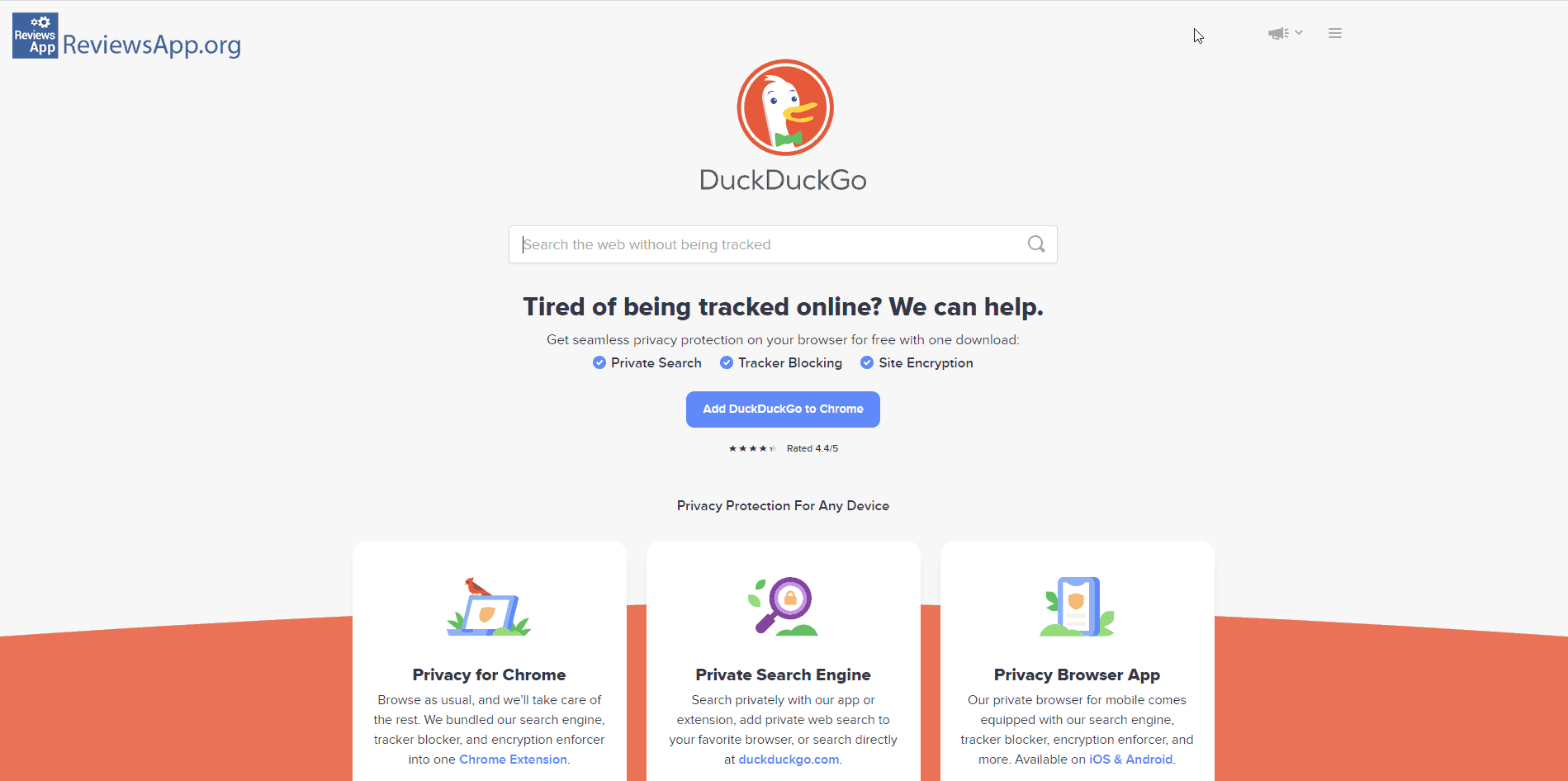DuckDuckGo – an internet search engine that protects your privacy and does not favor anyone

Google is one of the world’s largest companies. Although the services they provide have expanded, they are still best known for their search engine. To keep their services free, Google collects and stores a staggering amount of data about our online habits. This data is used to show so-called targeted ads. Advertisements displayed in this way are the company’s primary source of revenue.
DuckDuckGo is an internet browser that focuses on the privacy of its users. As they describe themselves, they are a search engine that does not collect any information about its users. In the following, we will compare these two search engines and try to see why DuckDuckGo has gained so much popularity recently.
About ten years ago, DuckDuckGo had about 80,000 searches a day. Today, it has over 100 million in the USA alone, and most of its growth happened in the last two years. Meanwhile, Google is the undisputed king in Internet search engines with 3.5 billion a day. In terms of the number of searches, Google is the absolute winner, but in terms of the way it works, the business model, and the options they have, the situation is not so clear.
How does Google and how does DuckDuckGo search the internet?
Most search engines collect and store user information, and Google links that information to your Google account. However, for some users, this may not be so important. What matters to everyone is the quality of the search.
When you search for something on Google, the results you get, in addition to the terms you type in the search box, will be personalized depending on your previous online activity. This means that if you visit a website often, and what you type in the search is on that site, that site will be among the first results found.
Because DuckDuckGo does not track its users, personalized search is not possible. DuckDuckGo combines data from other search engines and websites such as Wolfram Alpha, Wikipedia, and Bing, along with its search algorithm, and tries to put the most relevant results on top.
It looks like Google is better than DuckDuckGo when it comes to search, but the situation is not that simple. The first problem is that Google will include as many results as possible on its first and most important page to its own services, such as YouTube or Google Play, while DuckDuckGo will always display the most relevant results.
Another problem, which has been growing lately, is the issue of censorship. For years, Google has been delisting websites, which means that it completely removes them from its search, and certain socio-political views are favored, and always those that are mainstream.
All this leads to the fact that the search on DuckDuckGo is often of better quality, despite not being personalized.
How does DuckDuckGo make money?
Like most free internet services, DuckDuckGo makes money by running ads. However, unlike Google, ads are not displayed based on users’ personal information. Instead, ads are based solely on the keywords in your search.
DuckDuckGo is also part of the Amazon and eBay collaborator program. If you click on any link from the search results to these sites and make a purchase, DuckDuckGo will get a small percentage of sales. It’s important to note that no user data will be forwarded to these companies.
Another way for a company to make money is through investments and donations. So far, through investments, DuckDuckGo has raised $13 million. Donations are certainly far less, but they are there as an option.
Can you trust DuckDuckGo?
This all sounds nice, but the question is, can we really trust DuckDuckGo? This is a question to which we cannot give a definitive answer, we can only look at the publicly available information and draw a personal conclusion.
Let’s start with the terms of use. What is immediately noticeable is that the language in which these conditions are written is clear and not ambiguous, which often is not the case. The little data that remains on the DuckDuckGo servers is described in detail and serves to store the user’s site settings.
The last sentence of this terms is:
“…we will comply with court-ordered legal requests. However, in our case, we don’t expect any because there is nothing useful to give them since we don’t collect any personal information.”
However, what inspires the most confidence is that DuckDuckGo is open-source, which means that the code is public, and anyone can view it on DuckDuckGo’s GitHub page. The search algorithm itself is the company’s property and is not publicly available, but the rest of the site is, and experts who have reviewed this code say that it has nothing to do with tracking users or favoring certain sites.
Is DuckDuckGo better than Google?
After everything we said, DuckDuckGo looks like a sure winner. Again, the situation is not that simple. Google’s personalized search works great and depending on what you are searching for may be better than DuckDuckGo. The biggest problem is censorship and favoritism, but at least for now, it is not too big of a problem, although it is rapidly moving in the direction.
On the other hand, although we are talking exclusively about search engines here, we must not forget all the other services that Google provides ich are deeply integrated into our lives. DuckDuckGo, in addition to a search engine, has several products of its own, such as a browser for Android and iOS, but that can in no way be compared to all the services Google offers.
If you are not dependent on Google services and you simply need a search engine, we definitely recommend you to try DuckDuckGo and see for yourself if it is better.
You can download DuckDuckGo Privacy Browser for Android HERE, and for iOS HERE.






